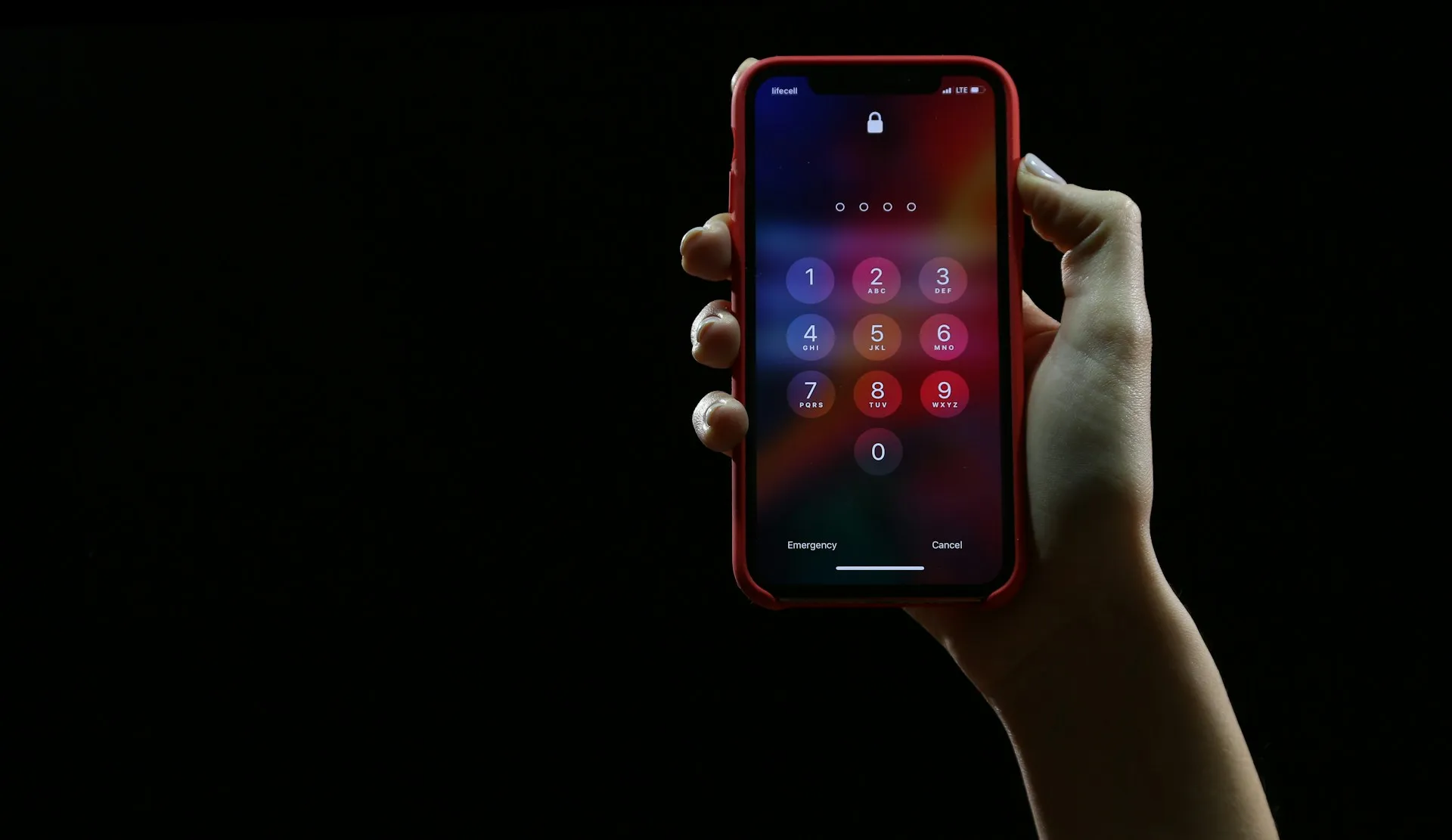Your digital identity is as valuable as your physical identity, and protecting it starts with a robust password strategy. As the cornerstone of online security, passwords guard your personal data against cyber threats, making it crucial to construct them wisely. By mastering the art of creating secure passwords, you ensure your accounts remain safe and your online presence secure.
Employing the best password strategy involves embracing complexity and length, avoiding easy-to-guess passwords, and regularly updating security measures. It’s not just about one strong password but a consistent practice that shields your digital identity from unauthorized access. Let’s dive into how you can fortify your defense against the ever-evolving landscape of digital risks.

Understanding the Essentials of Password Security
At the core of preventing data breaches is the creation of strong passwords. Weak passwords are often the weakest link, leading to compromised information. Adhering to effective password security policies and management can reduce the risk of unauthorized access and safeguard your digital assets.
Defining a Strong Password
Strong passwords are your first line of defense in online security. A strong password should be at least 12 characters and include a mix of uppercase and lowercase letters, numbers, and symbols. Avoid dictionary words and ensure passwords are unique to each account. Password managers encrypt your data and add an extra layer of security, making it harder for hackers to crack your accounts. Secure passwords are the foundation for protecting your mobile devices and personal information from cyber threats.
Common Password Attack Methods
Cybercriminals have various methods to infiltrate online accounts, including using sophisticated software that targets weak “master passwords.” To protect your digital identity, it’s vital to understand these attack methods and ensure your passwords are robust enough to withstand them, especially on mobile devices frequently targeted due to their portability and the wealth of information they hold.
Brute-Force Attack Explained
A brute force attack is a trial-and-error method hackers use to decode encrypted data such as passwords. By systematically checking all possible combinations, weak passwords can be cracked, granting unauthorized access. The longer and more complex your password is, the more resilient it will be against such brute-force attempts.
The Mechanics of a Dictionary Attack
Dictionary attacks are a form of brute force where hackers use a list of common words to gain access to accounts. Unlike traditional brute force attacks that try every possible combination, dictionary attacks are more focused, using pre-arranged lists of likely passwords, which makes them faster and often just as dangerous.
Crafting the Ideal Password
Creating the perfect password is an exercise in balancing memorability with complexity. The goal is to craft a password that is difficult for others to guess but easy for you to remember.
The Art of Creating Memorable yet Complex Passphrases
Aim for characters in length that mix upper and lowercase letters with numbers and symbols to thwart hackers eager to crack your password. The National Institute of Standards and Technology (NIST) advises using lengthy passphrases that resonate with your digital identity but are not easily deciphered. These passphrases should be unique to you and difficult for others to replicate.
Leveraging Password Generators for Optimal Security
Password creation should not be a hassle. Implement password generators to devise strong, random passwords quickly. These tools help in creating a strong password that’s safe and secure, without the need for you to recall the complex sequence of characters each time.
The Role of Emoticons in Password Complexity
Using emoticons in passwords adds a layer of creativity and complexity. These symbols can often be included in passwords, making them more challenging to guess and more personal and memorable.

The Pillars of Password Management
Effective password management lies at the heart of digital security. It is a multi-faceted approach that involves creating strong passwords and managing and storing them properly.
The Advantages of Using Password Managers
Password managers are essential for keeping your online information safe and secure. They assist in storing passwords securely and can generate complex passwords for you. This means you only need to remember one strong ‘master’ password while the manager takes care of the rest, ensuring your passwords are as strong as possible and stored securely.
Implementing Multifactor Authentication (MFA)
MFA enhances security by requiring multiple verification forms. This could include something you know (like a password), something you have (such as a mobile device with Google Authenticator), and something you are (like biometric data or facial recognition). Physical security tokens or an authenticator app add an additional security layer, making unauthorized access much more difficult.
How MFA Works
Multi-factor authentication (MFA) enhances security by requiring multiple verification forms before granting access. When you log in with your username and password, MFA demands an additional step, typically a one-time code sent to your mobile device or generated by an authenticator app. This extra layer makes it much harder for attackers to gain access since they need both your password and physical access to your authentication device. In addition to MFA, employing a secure method like an MD5 hash generator can further protect sensitive information. An MD5 hash generator takes a string (like a password) and transforms it into a fixed-length, unique string of characters. While MD5 is commonly used for hashing data, it’s important to note that it is not the most secure method for encryption due to vulnerabilities that have been identified over time. However, when used in conjunction with other security measures like MFA, it can still contribute to securing data by ensuring that passwords and other sensitive information are not stored in plain text.
Tenets of the Best Password Strategy
Developing the best password strategy is critical for personal and organizational digital security. It involves embracing principles such as complexity, encryption, and regular testing of passwords’ strength. By applying these tenets, you can safeguard your digital identity against unauthorized access and mitigate the risks of data breaches.
1. Embrace Length and Complexity
A strong password is a cornerstone of account security. It should be lengthy and complex, combining letters, numbers, and symbols in unpredictable sequences. Avoiding common words and string patterns makes it tougher for attackers to crack your password using brute force or dictionary attacks. The longer and more complex your password, the more secure it will be.
2. Encrypt Your Passwords for Additional Security
Encryption transforms your passwords into an unreadable, scrambled format without a specific key. Encrypting your passwords adds an additional security layer that protects them even if a data breach occurs. This practice is especially important for safeguarding sensitive information and should be a standard part of your password management protocol.
3. Apply Two-Factor Authentication Whenever Possible
Two-factor authentication should be a staple in your digital security diet. It adds a critical second layer of defense that makes it significantly harder for attackers to gain access, even if they steal your password. This often involves entering a one-time code after inputting your username and password, ensuring that only you can access your accounts.
4. Integrate Advanced Authentication Methods
In the age of Windows 11 and other advanced operating systems, integrating cutting-edge authentication methods is key. Biometrics, such as fingerprint or facial recognition, offer heightened security beyond traditional passwords. These methods provide a personalized layer of protection that’s extremely difficult for an unauthorized user to replicate.
5. Regularly Test Your Password’s Strength
It’s crucial to regularly test your password’s strength to ensure it’s robust against potential attacks. Use online tools that assess your passwords’ complexity and resilience without revealing them. This proactive measure helps identify weak passwords so you can strengthen them before they become a target for cybercriminals.
6. Avoid Common Words and Simple Patterns
Avoid using common words and string patterns in your passwords to thwart attackers. These are easily guessable and often quickly compromised. Instead, opt for random words combined in unique ways or nonsensical strings that have no obvious association with you or your personal information, making them much harder to crack.
7. Ensure Unique Passwords Across All Accounts
It’s vital to create complex passwords that are unique for each of your accounts. Reusing passwords across multiple platforms significantly increases the risk of a domino effect if one account is compromised. Ensure that each password is distinct and unrelated to others, enhancing the security of your digital presence.
8. Maintain Mobile Device Security
Mobile phones have become central to our daily lives and, as such, are a treasure trove for attackers. It’s imperative to secure these devices with strong passwords, biometrics, and up-to-date security software. Protecting your mobile phone helps prevent unauthorized access to your personal data and any saved passwords.
9. Limiting Periodic Password Changes
Recent guidelines suggest limiting frequent mandatory password changes, as they often lead to reusing previous passwords and can compromise security. Instead, focus on creating strong, unique passwords and only prompt changes if there’s evidence of a potential security threat or after certain intervals to minimize risks.
10. Adjust Passwords Following Personal or Staff Changes
Whenever personal or staff changes occur, it’s prudent to adjust passwords to prevent unauthorized access by former employees or associates. This practice helps maintain the integrity of your accounts and ensures that only current, authorized individuals have access to sensitive data and systems.

Password Security for Organizations
Organizations face the constant threat of data breaches, making robust password management essential. Effective password security policies and password management techniques must be in place to protect against unauthorized access. Advanced tools for managing and safeguarding passwords, such as password managers and privileged access management, can significantly reduce the risk of compromised credentials.
Importance of Privileged Access Management (PAM)
Privileged Access Management (PAM) is indispensable for securing high-level accounts within an organization. PAM ensures that sensitive credentials are regularly updated and never exposed to end-users, minimizing the risk of misuse. This specialized management of privileged accounts is a critical defense against cyber threats and unauthorized access attempts.
Keeping Your Password Strategy Updated
It’s essential to regularly update your password strategy to avoid potential security threats. Integrate the latest security recommendations and technologies, such as password managers and two-factor authentication, to bolster your defenses against identity theft and unauthorized access to your digital identity.
The Impact of Technological Advancements on Password Management
Technological advancements, like trusted password managers, are revolutionizing password management by offering encrypted vaults to store passwords securely. These tools often suggest unique passwords of a minimum length of 10 characters, making it easier to protect passwords and minimize the risk associated with password handling.
The Future of Authentication
Authentication methods are evolving, with trends pointing towards increased use of two-factor authentication and biometric verification. These methods add additional security layers, making it more challenging for unauthorized users to access sensitive information with just a username and password.
Moving Towards Zero Trust Frameworks
Organizations are increasingly adopting Zero Trust frameworks, which require continuous verification of all users, devices, and network connections, regardless of location. This shift is a proactive approach to prevent unauthorized access and secure digital assets preemptively.
The Role of Cybersecurity Insurance in Protecting Digital Assets
Cybersecurity insurance can be pivotal in mitigating the financial risks associated with data breaches and cyberattacks. It can provide coverage for the loss of digital assets, ensuring that you have financial protection in place and technical defenses like robust passwords and MFA.
Securing Your Digital Identity: Beyond Passwords
In today’s digital landscape, securing your identity goes beyond just passwords. Integrating additional security measures such as biometrics, encryption, and behavior analytics can provide a more robust defense against cyber threats and unauthorized access.
The Intersection of Biometrics and Traditional Passwords
Biometrics is becoming an increasingly popular method of enhancing traditional password security. Combining something you know (a password) with something you are (a biometric identifier) can significantly strengthen your overall security posture and protect your digital identity.
Exploring the Potential of Passwordless Authentication Systems
Passwordless authentication systems are gaining traction as a secure, user-friendly alternative to traditional password-based logins. By eliminating the need for passwords, these systems reduce the risk of phishing, password theft, and other common security breaches. Instead, they use biometric verification, hardware tokens, or one-time codes through mobile devices. This approach enhances security and simplifies the login process, making it more convenient for users. As organizations look to bolster their defenses against cyber threats, shifting towards passwordless methods could significantly protect access to sensitive resources.
Empowering Yourself with a Robust Password Strategy
In conclusion, a robust password strategy is your best defense against unauthorized access to your digital life. It involves creating memorable passwords that combine capital letters with other characters to maximize password strength. Think of phrases or sayings that resonate with you personally, and then tweak them to abide by strong security practices. Remember, the best password managers can assist in storing these complex passwords securely. Whether it’s for online banking or a sheet of paper with sensitive information, always prioritize defense against unauthorized access. By adopting these strategies, you empower yourself with a critical layer of protection in the digital world.
